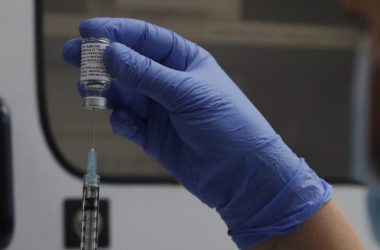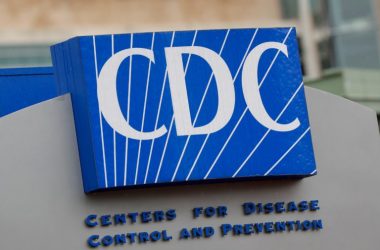The Trump administration issued its long-awaited Make America Healthy Again (MAHA) Commission report Thursday, hammering various industries while deviating from mainstream science on key issues including farming practices, vaccinations and psychiatric medications.
President Trump appointed Health and Human Services (HHS) Secretary Robert F. Kennedy Jr. to lead the MAHA Commission, which issued its first report on children’s health Thursday. It pointed to four key factors that it says are hurting U.S. children: ultraprocessed foods, environmental chemicals, digital behavior and “overmedicalization.”
The report identifies pesticides and other chemicals as potentially having harmful health impacts, but it stops short of recommending actions to limit them — disappointing some advocates.
When it came to childhood mental and physical health, the report concludes that large corporations are distorting the U.S. health system for the sake of profits.
Here’s what you should know:
Stops short of calling for action against chemicals and pesticides
“There is a growing concern about the link between environmental health risks, particularly cumulative risks, and chronic disease,” the report states.
“Furthermore, in the past nearly 30 years, the chemicals children are exposed to have grown – and no country fully understands how the cumulative impact of this growth impacts health,” it continues.
However, rather than calling for specific actions against these health threats, the report says more studies are needed, including from the National Institutes of Health, to fully understand the impacts of things like microplastics and pesticides.
In particular, it mentions glyphosate, the chemical in Roundup weed killer, which has been the subject of thousands of lawsuits, many of which allege that it causes cancer, though the company has denied this.
The report also mentions atrazine, a commonly used pesticide that has been found to disrupt the endocrine system and has been banned in the European Union
Also on the list to study more are PFAS, toxic substances used in nonstick and waterproof products that can last in the environment for hundreds of years, as well as phthalates, which are used to make plastics flexible and have been found to disrupt the endocrine system.
The Wall Street Journal reported the White House altered the report to remove references to the company Monsanto, information about PFAS lobbying and conflicts of interest in chemical regulation.
Environmental Protection Agency Administrator Lee Zeldin told reporters that the Trump administration would not be pursuing a “European, mandate-driven regulatory system that stifles growth.”
Lori Ann Burd, environmental health program director at the Center for Biological Diversity, told The Hill that identifying a problem but not pursuing actions was not good enough.
“It’s really disappointing that, after all the promises that the commission was going to stand up to powerful corporate interests and really get to the bottom of what is making Americans so sick, it caved to these powerful corporate interests,” Burd said.
“They have joined every administration before them in cowering in fear when faced with the power of Big Ag,” she added.
Says children are taking too much medicine
Kennedy has been vocal in his belief that many medications like vaccines and psychiatric drugs are overused in the U.S. and, in aggregate, are causing some of the health problems plaguing America’s children.
These beliefs were reflected in the commission’s findings.
The report noted the use of stimulant drugs, antidepressants, antipsychotics and asthma medications have all increased among children within the past 30 or so years. It further cast speculation on childhood vaccination schedules, noting that the number of vaccines implemented in the U.S. exceeds that of many European vaccine schedules.
“These time trends significantly outpace more moderate increases seen in other developed countries. Psychotropics for ADHD or one example, prescribed 2.5 times more in US than in British children, and 19 times more than in Japanese youth,” the report stated.
Kennedy has claimed that childhood psychiatric drugs are “insufficiently scrutinized” and addictive. Childhood psychiatrists blasted Kennedy’s rhetoric as unhelpful to children with mental illnesses.
“There is some concern, even more so in the field, that many children with depression and mental health disorders do not get access to the mental health services that they need, and that includes the comprehensive treatment that we would recommend, which is beyond just SSRIs, but also therapy and other supports,” Lisa Fortuna, a child psychiatrist and chair of the American Psychiatric Association’s Council on Children, Adolescents and Their Families, previously told The Hill.
While stopping short of blaming vaccines for directly contributing to chronic illnesses and acknowledging that immunizations “benefit children by protecting them from infectious diseases,” the report claimed there has been “limited scientific inquiry into the links between vaccines and chronic disease.”
To improve the understanding of vaccines and any links to chronic disease, the report supported “more rigorous clinical trial designs” that include placebos, larger sample sizes and longer follow-up periods.
Kennedy was perhaps the country’s most prominent vaccine skeptic prior to becoming the HHS secretary. He has continually refused to acknowledge data disproving any links between vaccinations and autism, even when confronted during his confirmation hearing by Sen. Bill Cassidy (R-La.), himself a physician.
Under Kennedy and Food and Drug Administration Commissioner Marty Makary, the HHS has moved forward with plans to enforce a new requirement for placebo testing on all new vaccines, though how this rule will be implemented remains unclear. Placebo-controlled testing is already a standard part of the vaccine approval process, and Kennedy told the Senate Appropriations Committee this week that he did not think it was ethical to retest all vaccines against a placebo.
The report blamed the “overmedicalization of American children” on “corporate capture.” It claimed the outsized influence of large corporations on public institutions had distorted “scientific literature, regulatory processes, clinical practices and public discourse.”
“The corporate capture of media, primarily through lavish advertising campaigns that are uniquely targeted to American consumers (no other developed country allows direct advertising of drugs to consumers, other than New Zealand where such advertising is heavily regulated and federally controlled) confers a notable level of reliance on the industry by those that benefit financially,” the report read.
“While in the U.S. the pharmaceutical industry has the First Amendment right to have these advertisements, studies suggest that they have a strong influence on those who view them, potentially increasing inappropriate prescription.”
Again, there was not a recommendation to take action against pharmaceutical advertising, though the commission suggested the constant exposure to pharmaceutical advertisements was responsible for “potentially increasing inappropriate prescriptions.”
Takes aim at ‘sedentary’ lifestyle with new technology
The report blamed “a sedentary, technology-driven lifestyle” that’s developed over the past 40 years for increasing “chronic physical and mental health diseases,” with childhood behaviors differing vastly from prior generations.
Citing data from the American Heart Association, the Centers for Disease Control and Prevention and numerous studies published within the last 15 years, the report noted how larger shares of children don’t meet healthy standards of fitness and fewer children take part in daily physical activities.
These conclusions align with what has been observed globally, with a 2019 study finding that 81 percent of adolescents aged between 11 and 17 were “insufficiently physically active.”
“Parallel to the decline in physical activity, American youth face a deepening psychosocial crisis. This is marked by rising mental health disorders, significant sleep deficits, chronic stress, and pervasive loneliness, all exacerbated by the widespread influence of technology,” the report stated. “The crisis persists despite rising therapy rates, with some suggesting it may exacerbate the issue.”
Social media use was also cited in the report as having a negative impact on children’s mental health, echoing initiatives from the Biden administration. Then-Surgeon General Vivek Murthy issued a health advisory in 2023 warning that increasing evidence suggests social media use was damaging youth mental health.
At the same time, screen usage has also been potentially linked to a reduction in some risky behaviors, like substance use and motor vehicle accidents, though whether there is a direct cause is unclear.
As with “overmedicalization,” the report took issue with the role that large corporations have in children’s use of social media as well as public health messaging.
“Technology corporations suggest a reach over childhood health that stretches well beyond the direct harms of screen exposure, actively shaping the contours of scientific discourse and the public-health policies that follow,” it stated, noting how federal agencies coordinated with social media platforms during the COVID-19 pandemic.
“These informal, largely invisible coordination between agencies and platforms — coupled with undisclosed ranking algorithms — compresses the range of permissible debate on childhood-health questions and can bury legitimate scientific concerns while impacting parental supervision.”
Nathaniel Weixel contributed.





